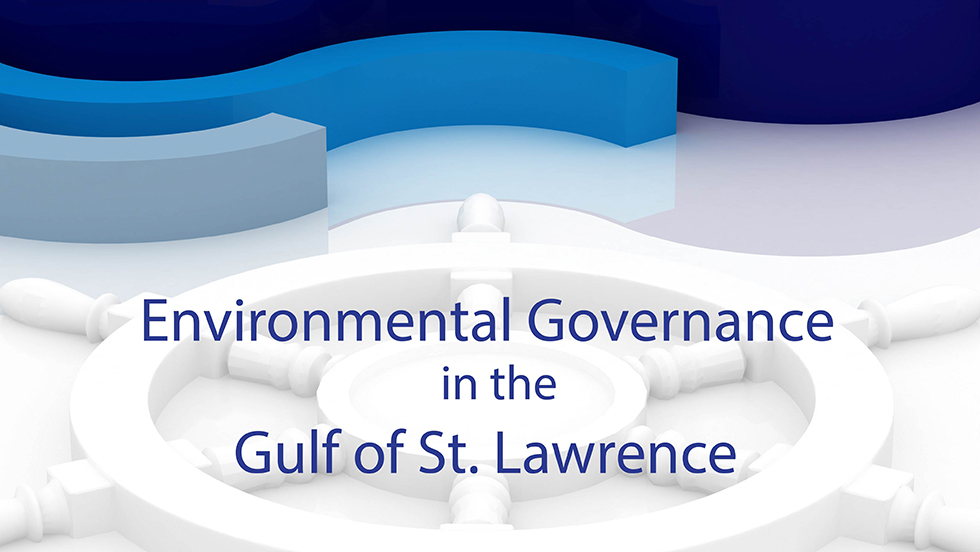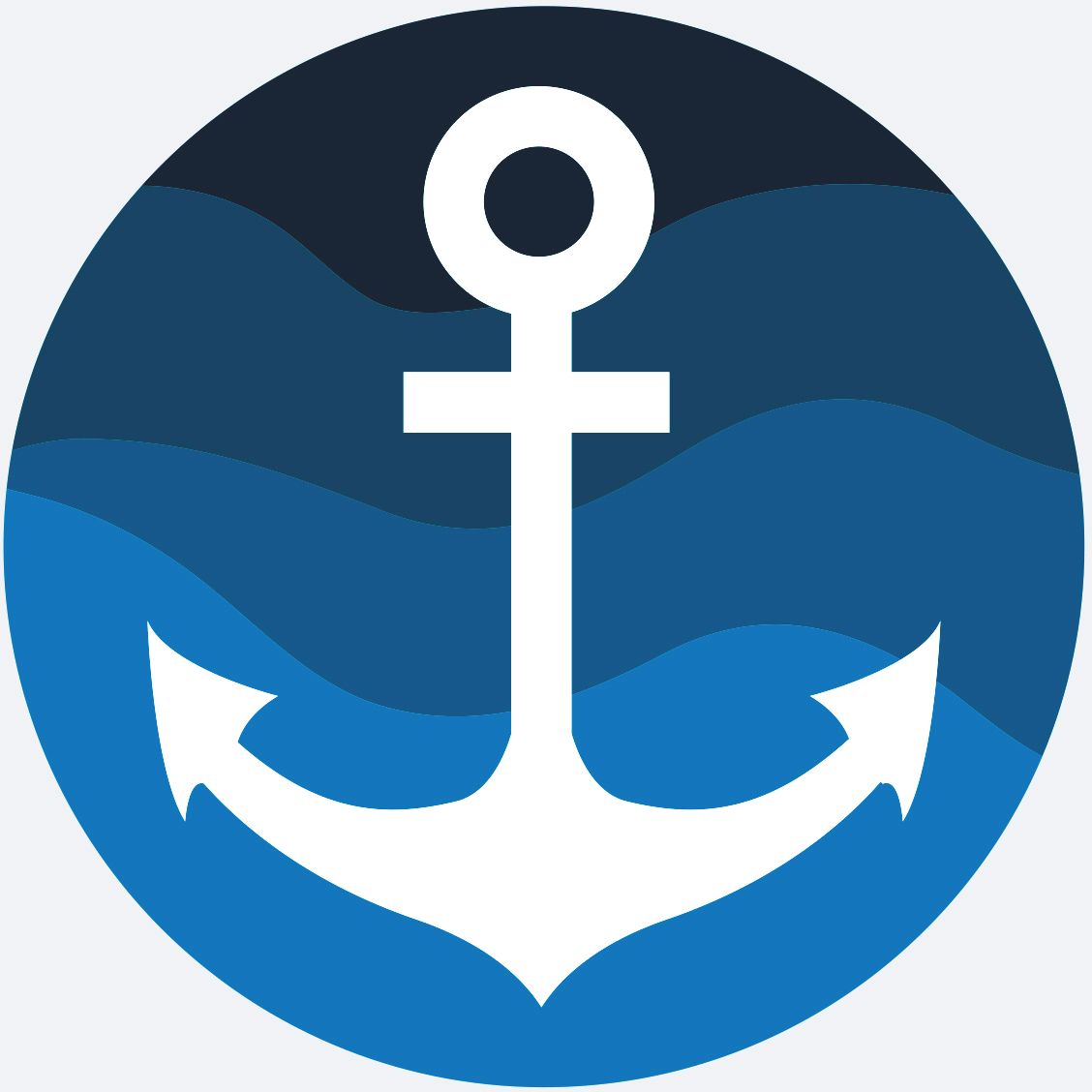
Extended Bio - Mario Levesque
Research Framework Overview
My research is centred on institutional and public policy analysis in the environmental and disability policy fields. My research aims to understand the composition of and how nested institutional arrangements matter for changes in public policy and governance regimes. Various factors are illuminated throughout the research including intergovernmental relations, institutional structures, bureaucratic discretion, network density and civil society actors.
1/ environmental policy research (not including the Gulf of St. Lawrence research)
On the environmental front, my work dates back to my doctoral studies (completed in 2008) where I examined linkages between actors, institutional configurations and policy outcomes as applied to groundwater policy in the Great Lakes basin and the US Mid-West (Ogallala aquifer) (Levesque, 2008). As this work unfolded, I tested the network analysis framework developed for it on two water issues (water permitting, water conservation) facing Hamilton, Ontario for a community group, Environment Hamilton (Levesque, 2007). The framework itself was then broken into its basic components and its utility assessed for practitioners (Levesque, 2012a). Collectively, this strand of research revealed significant discretion decision makers possessed in enacting and implementing changes in public policy. The extent and limitations of this discretion was explored in a case study of changes to Part 8 of Ontario’s 2006 Building Code (Sewage Systems) which greatly enhanced the discretion of building inspectors (Levesque, 2011a).
A second strand of my institutional and public policy analysis in the environmental sector surrounds various initiatives. For example, I assessed efforts by the Williams administration to position the fishery in Newfoundland & Labrador on a sustainable footing (Levesque, 2014a). To highlight the power relationships at play, a case study of the fish processing sector in the province has been undertaken. Initial results (see Levesque, 2013a) have found that a significant lack of trust among stakeholders led to diametrically opposed entrenched positions from which few wanted to deviate. The paper is being revised to incorporate additional interview data before submission for journal publication. On a related theme, I have examined how environmental issues surface on the policy agenda, the results of which underscore the importance of institutional differences across nation states (El Dessouky & Levesque, 2011b).
Turning to public policy analysis, I have led multidisciplinary teams of researchers that have reviewed industrial proposals to assess their environmental ramifications, as well as provided feedback on proposed provincial environmental policies. For example, I led a team of nine individuals that examined Corner Brook Pulp & Paper’s Tire Derived Fuel proposal. Our analysis highlighted the insufficient fuel combustion and emissions control technology and the resulting negative health effects, as well as the proposal’s inconsistency with long stated NL provincial environmental goals and policies. The proposal was subsequently withdrawn until needed changes could be made (Levesque et al., 2010a). As a follow-up, I have undertaken an examination of other tire derived fuel proposals that highlights decision making processes and the use of scientific information (Levesque, 2014b). Another multidisciplinary team I led examined Newfoundland & Labrador’s proposed climate change framework to identify gaps and policy options, both broad and targeted, for redress (Levesque at al., 2010b).
Ongoing research in addition to projects noted above include,
- a comparative case study assessing the effectiveness of changes to waste diversion initiatives in New Brunswick’s large urban centres—Moncton, Saint John and Fredericton. Early results suggest path dependencies greatly restrict choices available to decision makers (Levesque & Jaworski, 2014c);
- a reassessment of the Labrador boundary dispute to include Indigenous interpretations of territory and space (Klain and Levesque, under review);
- a comparative case study analyzing the political and environmental dynamics of the proposed Strait of Belle Isle fixed link to the Deh Cho bridge in the Northwest Territories and the Confederation Bridge in Prince Edward Island (Levesque and Klain, 2017a). This paper is currently being revised for publication.
2/ disability policy research
The same institutional and policy analysis framework guides my disability policy research which dates back to 2004-05 when I was a Research Assistant for Dr. Peter Graefe at McMaster University. It is there where accountability provisions were first identified as problematic in federal-provincial disability agreements (Graefe & Levesque, 2006) and was later investigated for their effects in three “have” and two “have not” provinces where it was found that federalism remains a major obstacle to substantive changes in Canadian disability policy (Graefe & Levesque, 2010c). In 2013, we began to look for solutions to accountability and funding blockages emphasizing new mechanisms for learning and contemplating whether federal efforts should bypass provinces to engage disability organizations directly (Graefe & Levesque, 2013b). Attention was also given to income and disability support aspects (Levesque & Graefe, 2013c).
Earlier work also identified the lack of programmatic innovation and it is this topic that was pursued in detail by developing a framework to assess the capacity of disability organizations in five provinces to develop and implement innovative programs (Levesque, 2012b). Disability organizations were found to be in a precarious position thus underscoring the importance of leadership, federal transfers and funding. From 2016-2019, I have pursued questions of leadership in the disability sector supported by a SSHRC Insight Grant ($47,486) having explored leadership turnover and skills learning in the first of three forthcoming papers (Levesque, 2018).
These results led me to question the political participation of disability organizations and persons with disabilities. For national disability organizations, they have gone from being policy actors with a seat at the table to the current situation of being policy entrepreneurs trying to influence policy from the outside (Levesque, 2017b). A similar situation has occurred on the international scene (Levesque and Langford, 2016a). For individual persons with disabilities, significant blockages exist to their political participation in Canada including political parties and electoral management bodies (Levesque, 2016b) leading few individuals to seek political office (Levesque, 2015a).
Recent work looks back on three decades of Canadian federal disability policy to reflect on what it would take to unlock and seize a window of opportunity in the current socially minimalist federal framework for meaningful disability policy changes to occur (Levesque, 2013d). It also begins to delve into the experiences of persons with disabilities in small communities in Atlantic Canada (Levesque, 2016-c) including disability transit (Levesque, 2015b, 2016d, 2017c).
Overall, my environmental and disability policy work has equipped me well to explore institutional dynamics, actor configurations and action situations. My current work on the Gulf of St. Lawrence is a natural extension of this institutional dynamic.
References
under review-a. Klain, Andrew and Mario Levesque. “Revisiting the Labrador boundary decision to include Indigenous interpretations of the region.” Journal of Canadian Studies.
2018. Levesque, Mario. “Disability Nonprofit Leadership in Turbulent Times – An Atlantic Canadian Profile.” 2018 Atlantic Provinces Political Studies Annual Meetings. St. John’s, NL. October 14.
2017a. Levesque, Mario and Andrew Klain. “A Severe Case of Tunnel Vision: Newfoundland and Labrador’s Fixed Link Proposal.” 2017 Canadian Political Science Association Annual Conference. Ryerson University. May 31.
2017b. Levesque, Mario. “Tailoring the permanent campaign: Disability organizations as policy entrepreneurs.” In The Permanent Campaign in Canada, eds. Alex Marland, Thierry Giasson and Anna Esselment. Vancouver: UBC Press.
2017c. Levesque, Mario. “Politically (dis)abled: Persons with disabilities in NL.” In Renewing Democracy in Newfoundland and Labrador, edited by Alex Marland and Lisa Moore, 222-225. St. John’s: ISER Books.
2016a. Levesque, Mario and Brynne Langford. “The role of disability groups in the development and implementation of the UN Convention on the Rights of Persons with Disabilities.” Canadian Journal Disability Studies.
2016b. Levesque, Mario. “Searching for persons with disabilities in Canadian provincial office.” Canadian Journal of Disability Studies.
2016c. Levesque, Mario. “Experiencing Disability in Small Acadian New Brunswick communities.” Canadian Political Science Review.
2016d. Levesque, Mario. Governance Options. Phase 2, Dieppe Accessible Transit Study. 46pp.
2015a. Levesque, Mario. “Missing in Action: Disability Policy and Persons with Disabilities.” In Canadian Election Analysis 2015: Communication, Strategy, and Canadian Democracy Samara/UBC Press.
2015b. Levesque, Mario. Dieppe Accessible Transit Study. 96pp + Addendums.
2015c. Levesque, Mario. “New Brunswick.” In Big Worlds: Politics and Elections in the Canadian Provinces and Territories, ed. Jared Wesley.
2014a. Levesque, Mario. “Fishing for Change: Fisheries Policy in Newfoundland & Labrador.” In First Among Unequals: Politics and Public Policy in Newfoundland and Labrador in the Danny Williams Era, eds. Alex Marland and Matthew Kerby, 194-212.
2014b. Levesque, Mario. “NIMBYISM, risk and energy from waste facilities.” Provincial and Territorial Policies and Beyond – Energy and Environment Session (J). 2014 Canadian Political Science Association Annual Conference. Brock University, St. Catharines, ON. May 27-29.
2014c. (October 4). Levesque, Mario and Filip Jaworski. “Policy or implementation failure: The South Eastern New Brunswick waste management system.” 2014 Atlantic Provinces Political Studies Association Annual Meetings. St. John’s NL.
2013a. Levesque, Mario. “Fishing for answers: In the aftermath of Newfoundland and Labrador’s 2003 Dunne Report.” Canadian Politics Section. Canadian Political Science Association Annual Conference. Victoria, B.C. June 04-06.
2013b. Graefe, Peter and Mario Levesque. “Accountability in Labour Market Policies for Persons with Disabilities.” In Overpromising and Underperforming? Understanding and Evaluating New Intergovernmental Accountability Regimes, eds. Peter Graefe, Julie Simmons and Linda White, 127-143.
2013c. Levesque, Mario and Peter Graefe. “‘Not Good Enough’: Canada’s Stalled Disability Policy.” In How Ottawa Spends, 2013-14, eds. Bruce Doern and Chris Stoney, 172-183.
2013d. Levesque, Mario. “When the Kool Aid wears off: A multiple streams approach to understanding two decades of Canadian federal disability policy.” 2013 Atlantic Provinces Political Studies Association Annual Meetings. University of Prince Edward Island, October 05.
2012a. Levesque, Mario. “Mapping a way forward: Interest group selection and roles performed in engagement processes.” Canadian Public Administration 55(4): 531-552.
2012b. Levesque, Mario. “Assessing the Ability of Disability Organizations: An Interprovincial Comparative Perspective.” Canadian Journal of Nonprofit and Social Economy Research 3(2): 82-103.
2011a. Levesque, Mario. “Build it...if you can!”: Discretion, Building Inspectors and Part 8 of the Ontario’s 2006 Building Code.” Canadian Journal of Urban Research 20(1): 103-30.
2011b. El Dessouky, Naglaa and Mario Levesque. “Stories from the North to the South: Why some sustainable cities initiatives gain significance and become existing public policies?” Interdisciplinary Themes Journal 3(1): 69-83.
2010a. Levesque, Mario, Erin Kelly, Nick Novakowski, Osman Parpia, Kim Hancock, Shoshannah Ganz, Tom Philpott, Gerard Curtis and Susan Pottle. Response to Corner Brook Pulp & Paper Tire Derived Fuel (TDF) Co-Firing Trial Project Proponent: Corner Brook Pulp & Paper Ltd. (Reg. 1539). Submission to the Department of Environment and Conservation, Government of Newfoundland and Labrador. 29 November. 40pp.
2010b. Levesque, Mario, Angela Carter, Wade Bowers, Ilka Bauer, Gabriela Sabeau, Susan Pottle and Sara Carson. “Response to Newfoundland & Labrador Public Discussion Document “Climate Change: Responding to Climate Change in Newfoundland & Labrador”.” 31 July. 21 pp.
2010c. Graefe, Peter and Mario Levesque. “Impediments to Innovation in the Canadian Social Union: The Case of the Labour Market Agreements for People with Disabilities.” Canadian Public Policy 36(1): 45-62.
2008. Levesque, Mario. Unravelling Nested Institutional Arrangements. PhD Dissertation. Department of Political Science, McMaster University. Hamilton, Ontario.
2007. Levesque, Mario. Avenues of Change in Groundwater Governance in Hamilton, On. Technical Report for Environment Hamilton. 138pp.
2006 (Automne). Graefe, Peter and Mario Levesque. “La nouvelle gouvernance fédérale et les politiques sociales au Canada : Leçons des ententes en matière de l’intégration en emploi des personnes ayant des handicaps.” Lien Social et Politiques 56, 73-86.
This research is supported by the Social Sciences and Humanities Research Council of Canada.
